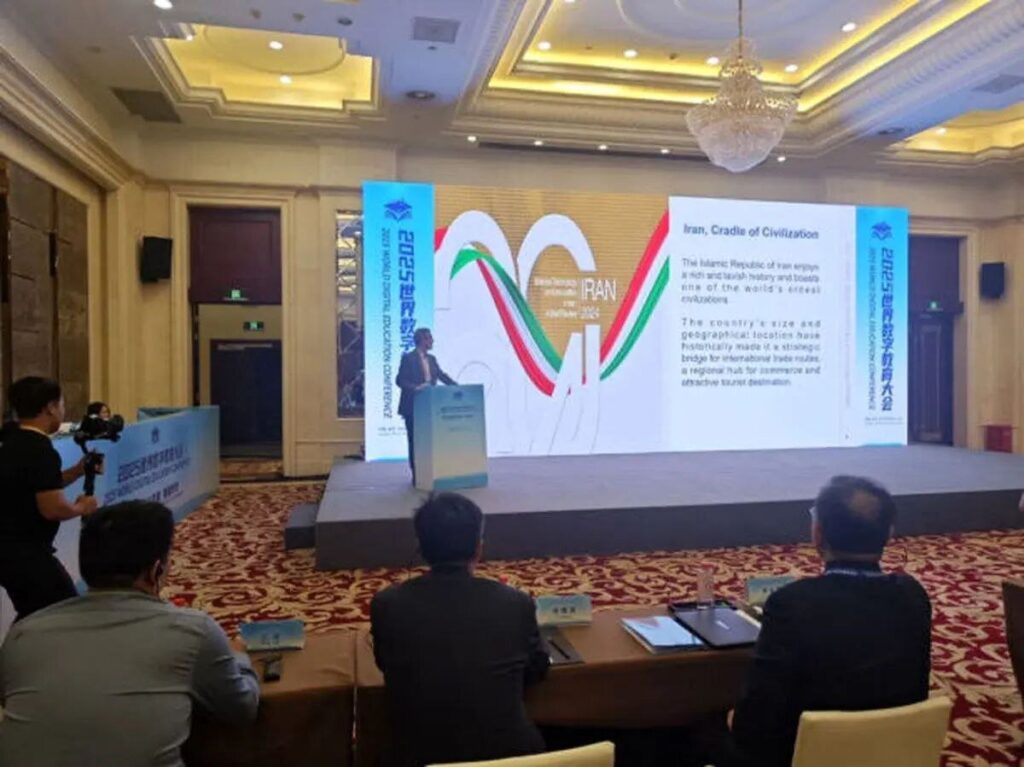Tehran – Addressing the 2025 World Digital Education Conference (WDEC), Iran’s Deputy Minister of Science and Research and Technology, Abolfazl Vahedi, he proposed the establishment of a digital education centre and the development of a digital education qualification system.
The conference, hosted by China’s Wuhan, was held from May 14th to 16th. Officials have also implemented the country’s higher education system and presented reports on the number of universities, students and educational infrastructure. Referring to Iranian university outcomes and expertise in digitalising education and the use of electronic and digital tools, the formula detailed concerns and challenges ahead of the development of education systems in the age of artificial intelligence (AI), the IRNA reported.
Digital technology has become a major force in the world’s scientific and technological revolutions and industry transformations in today’s era, increasingly integrated into various fields and overall processes of economic and social development, dramatically changing production methods, lifestyles and social governance, bringing new challenges and opportunities for education.
Furthermore, AI is increasingly present in education. In high-income countries, more than two-thirds of secondary school students already use generative AI tools to generate academic work.
Teachers use AI to prepare lessons and evaluate students’ work. School guidance and admissions traditionally guided by teachers and professionals are also increasingly determined by AI.
In Iran, a national conference held in Tehran on October 9, 2024 examined the role of artificial intelligence (AI) in education and learning.
Using AI-driven technologies in education and learning as a transformational component not only helps to promote the quality and efficiency of the education process, but also provides cutting-edge technology and smart solutions to a wide range of individuals, ISNA reported.
Accurately analysing educational data and providing immediate feedback has improved student evaluations and production of educational content.
We also focused on three main axes. Recognize challenges and capabilities. Establish a dynamic and collaborative environment and discover new technology-based assessment and evaluation methods.
It focuses on topics such as AI and medical education, cognitive science, schools, design and content production, human resource development, education assessment and evaluation, future AI in education, ethical considerations, artificial intelligence and schools.
The main objective of the conference was to raise awareness of modern technology and its applications in teaching and learning systems.
The age of intelligence
The benefits of digital education such as equity, inclusiveness, and openness provide a new avenue for education, helps modernize and promotes the overall development of individuals.
The United Nations, together with global and international organizations, is taking proactive steps to advance digital transformation in education. The United Nations Transforming Education Summit identifies digital transformation in education as one of five theme action tracks, highlighting that the digital revolution should benefit all learners.
With the theme of “Education Development and Change: An Age of Intelligence,” the 2025 WDEC aimed to respond to the United Nations initiative on global education change and call for joint efforts to promote education development and transformation in an age of intelligence.
The conference aims to work with governments, universities, primary and secondary schools, related international organizations, non-governmental organizations, businesses and other stakeholders to explore the development of digital education in all processes of “education-management-assessment-research” and to promote the achievement of the international sustainable development goals.
mt/mg

